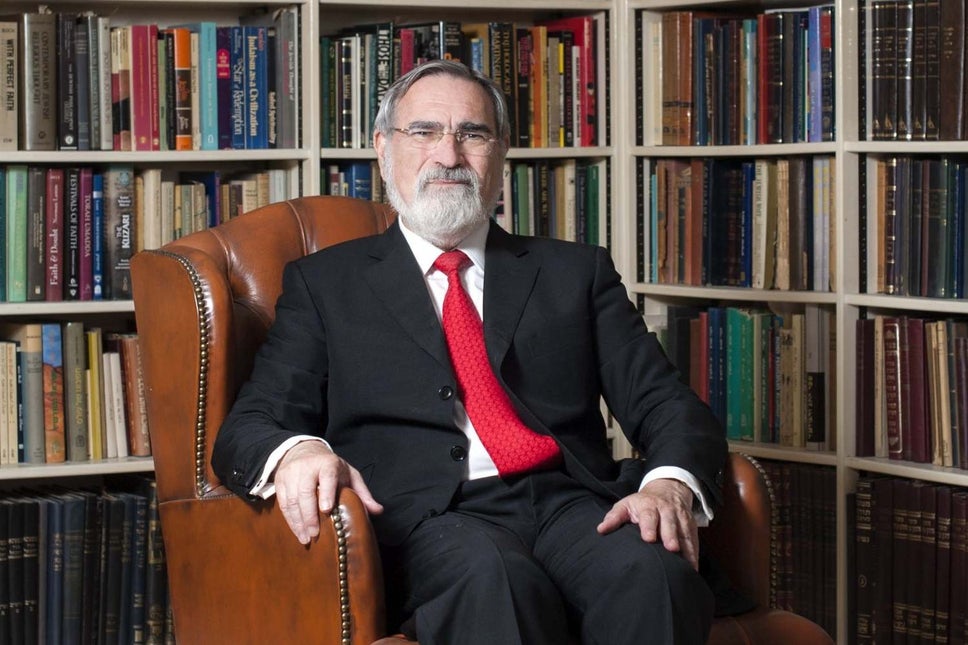A rabbi was, after all, a teacher. He was a clear, kind one, still with a touch of East End about him, his father had sold shmatters, clothes, in Petticoat Lane, and when he was made a peer in 2009 he took the title "Baron Aldgate". But he was also firm, even stern. He wanted to leave his mostly secular listeners in no doubt that things were good or evil, true or false, absolutely, and that moral relativism was the scourge of the age.

Every crisis gave birth to opportunity. The world could be changed not by force, but by ideas. Unhappily, though, much of the raucousness that dogged him came from Jews themselves. Though non-Jews saw him as the spokesman for all the Jews of Britain, officially he was the leader of only an Orthodox minority, the United Hebrew Congregations of the Commonwealth. A much larger number, Reform and Liberal and ultra-Orthodox, or Haredi, were outside his purview, but still looked to him. Pleasing everyone was impossible. His intellectual instincts, honed at Church of England schools and Cambridge rather than religious shuls, were on the liberal side, and in that spirit he made services more lively and revised the daily prayer book, translating the Hebrew from scratch.
译文由可可原创,仅供学习交流使用,未经许可请勿转载。












